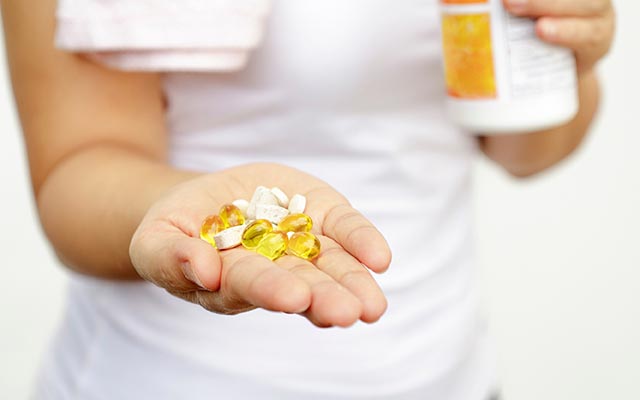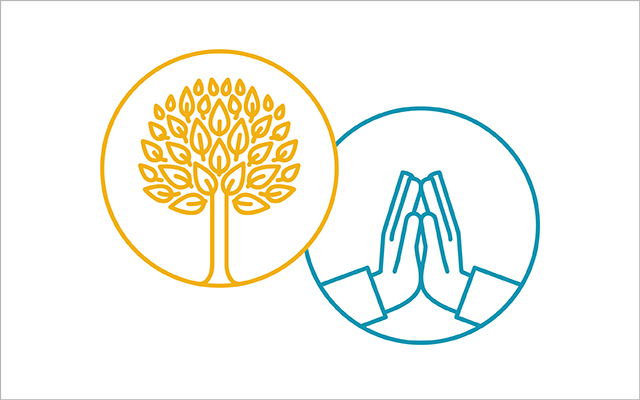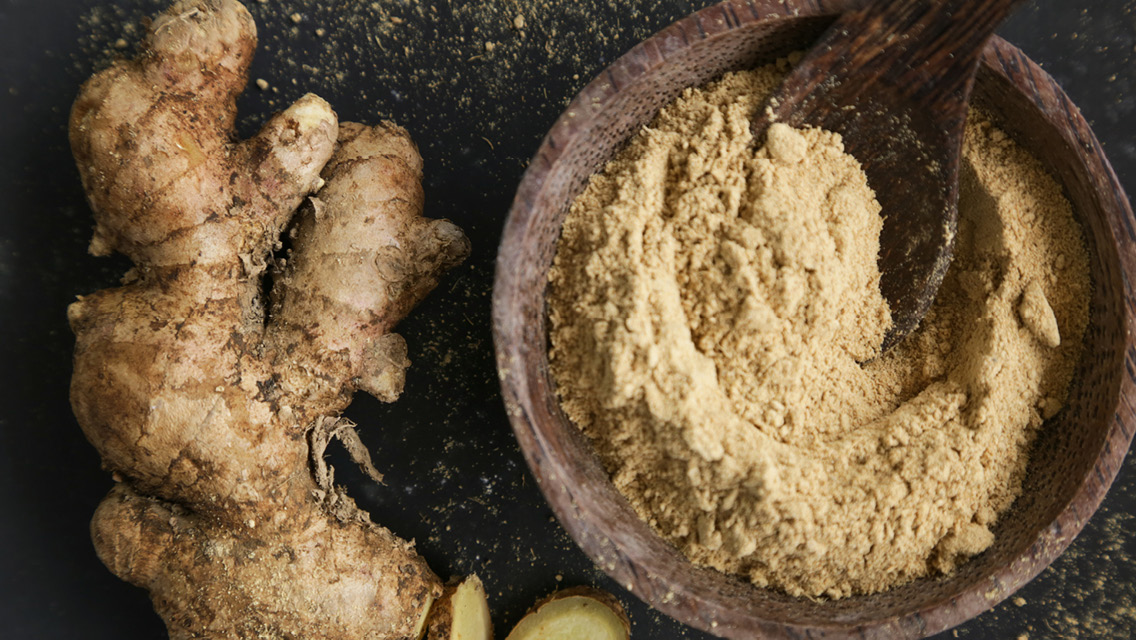Q | I see a lot of people popping painkillers whenever they’re sore after a workout or run. What are some more-natural ways to deal with this?
A | This lingering muscle pain is known as delayed-onset muscle soreness (DOMS). It typically develops within 24 hours of exercise and peaks within 48 to 72 hours.
While over-the-counter pain-killers are tempting, they can do more harm than good. NSAIDs like ibuprofen have been shown to interfere with your body’s natural healing process, and they potentially trigger additional inflammation. (Learn more at “This Is Your Body on Ibuprofen.”)
You don’t, however, have to grit your teeth and suffer through DOMS. In fact, you may not need to look any further than your kitchen or bathroom for relief.
“One way to alleviate DOMS through natural or nutritive means — opposed to pharmaceuticals — is to nourish your body with the right nutrients to promote an optimal inflammation response,” says Paul Kriegler, RD, LD, a dietitian and program director with Life Time in Chanhassen, Minn.
Start by eating a diet rich in vegetables, fruits, healthy fats, and protein. Building on that, you may want to consider one or more of the options noted in the chart below. (For more information about these suggestions, including related studies and dosage, see below.)
Pain-Relief Alternatives
Omega-3 fatty-acid supplements: “These help balance our systemic inflammatory response,” says Kriegler, and are especially helpful if you’re getting more omega-6 fatty acids than you need, as is commons with most North Americans. Look for DHA (docosahexaenoic acid) or EPA (eicosapentaenoic acid), preferably sourced from fish. Aim for at least 2,000 mg daily, suggests Kriegler.
Curcumin: A compound found in turmeric, it promotes a healthy inflammation response. Numerous studies have shown that it protects and improves the health of virtually every organ in the body and has proven to be as effective at reducing inflammation as ibuprofen. If taking supplemental curcumin via capsules, tablets, or bottled beverages, check the label to make sure the product includes a source of fat, as curcumin is not water soluble, explains Kriegler.
There are also a number of ways to get your curcumin fix through food: Try adding a teaspoon of fresh or powdered turmeric to your meals (it’s a popular spice in Indian cuisine), to bone broth, and even to warm coconut milk to make a creamy turmeric “tea.”
Branched-chain amino acids (BCAAs): These supplements have been shown to relieve DOMS, and may be especially beneficial for those who have diminished digestive efficiency or difficulty digesting animal proteins. “Generally 3 grams taken three times daily, or about 10 grams total, of BCAAs are the sweet spot for DOMS alleviation,” Kriegler says.
Arnica: Beyond nutrition, there are topical treatments that can counteract the effects of DOMS. Arizona-based herbalist John Slattery recommends arnica balm or ointment, which can be applied topically to muscles and joints.
Tart-cherry powder or juice: These fruits have been proven to help muscle recovery — specifically reduced signs of muscle damage and lower inflammatory markers — in as little as a week or two.
Epsom salts: He also recommends the old standby: a warm Epsom-salts bath. Simply add a cup or so of the magnesium-infused salt for a normal-size tub. “An Epsom-salts bath can really calm the hyperfiring of the muscles,” says Slattery.



This Post Has 0 Comments